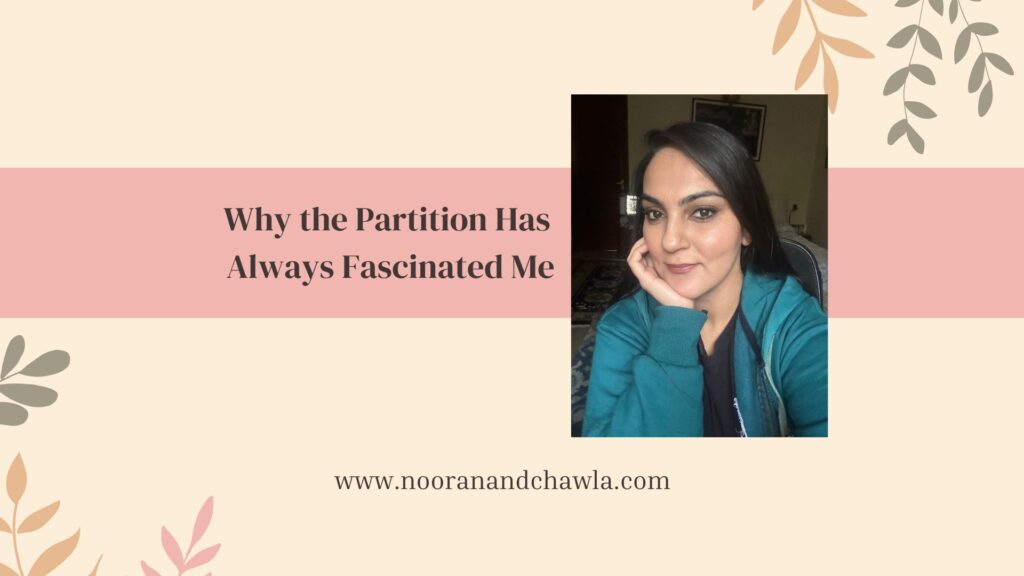This essay was originally written for a different publication, but I recently learnt they are not likely to use it for a long time. So, I’m sharing it here for now. Here are my thoughts on why the Partition of India has always fascinated me:
__________

Till I was about 13 years of age, the ‘Partition’ was an esoteric concept for me. I’d come across references to it in history books and was vaguely aware that my family had crossed borders to move their permanent abode of residence on Indian soil during this time. But I never understood the true implications of this word. Then as a teenager discovering a love for the written word, I picked up Shauna Singh Baldwin’s novel, ‘What the Body Remembers’. Though ostensibly a tale of love and longing featuring a Sikh Zamindar and his two wives, it was Baldwin’s rich description of village life and close-knit family set in the backdrop of the events leading to the Partition, that really appealed to me.
From then, I was hooked on the subject and began devouring books, movies, and anything else I could lay my hands on. However, this interest did not translate into an immediate need for uncovering the truth of my own family’s story. That came later – after I learnt that an organisation working to preserve the memories of Partition survivors, had interviewed my Dadaji (paternal grandfather) and released the interview blurb on their Facebook page, exactly a year after his passing. In it, he had narrated in detail his experience of seeing the carnage of a few refugee trains up close, as a young army officer on duty at the railway stations. He also recounted his deep-felt regret at having the opportunity to return to his haveli in Rawalpindi yet leaving the family treasures behind a locked door. I was moved and intrigued to learn all this and wanted to know more. Hence, I contacted the team to see how I could get involved with the work of their organisation.
They suggested recording my own family’s history. And so, I did – that of my Nanaji (maternal grandfather). As he was the son of a government employee and resident of Delhi, his experience of the Partition was limited to memories of a few disturbing incidents that took place in the riots that followed, as well as the refugees they harboured in their home for months. My paternal grandmother had lived in Mumbai and had not felt the real terror of that time, which is perhaps why she never brought it up in her lifetime. Through conversations with my mother and uncle, I pieced together that it was my Naniji (maternal grandmother) who had lived through the partition in its truest form, having crossed the border with her family as a six-year-old child, leaving one newly married sister behind (an experience I’ve written about here). I missed out on speaking to my Nani about this experience as we lost her to cancer at a young age. Hence, though my family had lived through the Partition in different ways, it was not an overpowering presence in their lives, certainly not one they shared with me…
Then why did stories of the Partition interest me so deeply?
Was it really because of shared intergenerational trauma?
I’m not sure.
Was it a way for me to understand and feel connected to my roots?
Maybe.
Was it simply human interest – the gory ‘story’ behind real-life incidents?
Possibly.
I believe the reason goes far deeper than any of these.
Perhaps I lived this experience in a past life and its scars ran so deep, that they still linger.
________
This blog post is part of ‘Blogaberry Dazzle’ hosted by Cindy D’Silva and Noor Anand Chawla and supported by Ivorystation, a new-age luxury website.
________
*This is not a sponsored post.
**Copyright in pictures and content belongs to nooranandchawla.com and cannot be republished or repurposed without express permission of the author. As I am a copyright lawyer by profession, infringement of any kind will invite strict legal action.
_________


